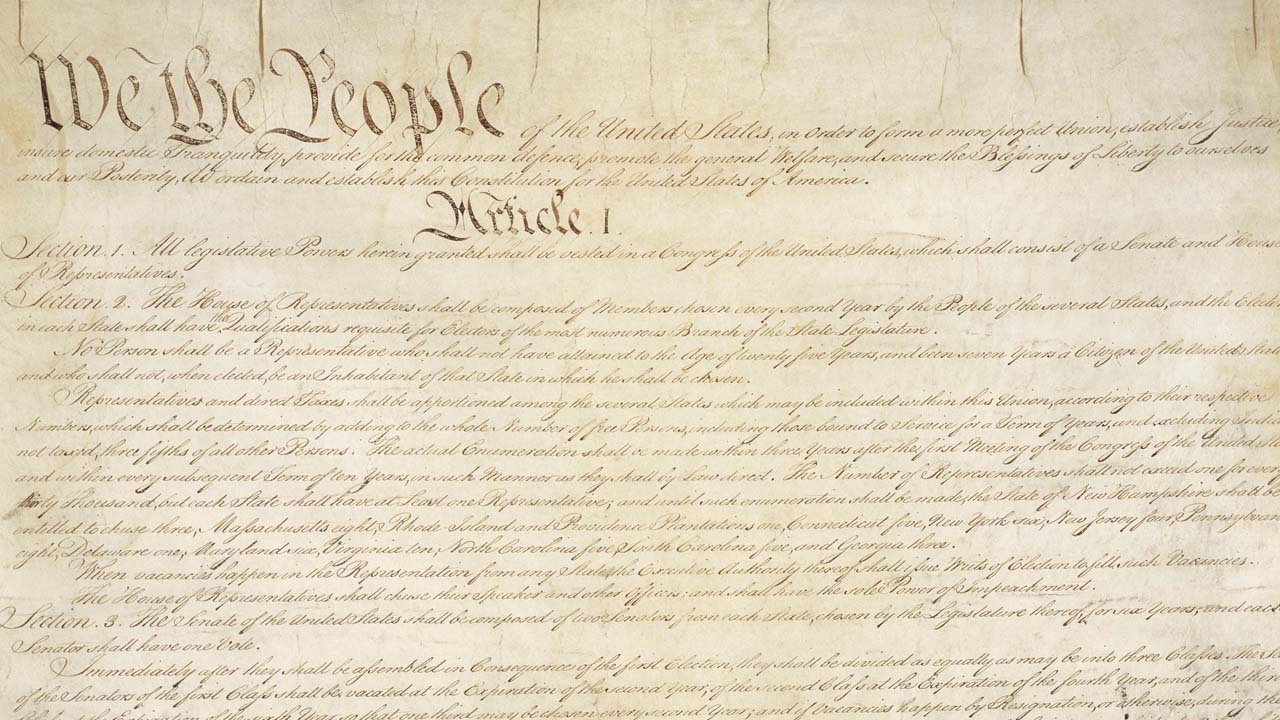Racial Equality and the U.S. Constitution: Scholars on Shortcomings That Need to Be Addressed
Professors on race and law discuss how the framers of the Constitution ingrained racist policies into the document.

The WDET Book Club is continuing its discussions about the U.S. Constitution to better understand how the document influences our daily lives. It is also looking at the ways the framers got it wrong. The U.S. Founding Fathers wrote the Constitution in a way that preserved the slave trade and allowed the capture and transfer of escaped enslaved people across state lines. They counted African Americans as three-fifths of a person so that the South would have a population advantage.
“The framers of the Constitution achieved exactly what they set out to achieve with respect to race, which was maintaining the institution of slavery, Indigenous people were given even less attention and subsequently the Constitution allowed their repeated relocation and attempted genocide.” –Professor Alan Jenkins, Harvard Law School
WDET’s Stephen Henderson talks with two legal scholars about how the Constitution, while a radical document at its time, is also a fundamentally flawed document that has key shortcomings that require addressing.
Listen: Professors on race, law and history discuss what the framers did wrong.
Guests
Alan Jenkins is a professor of practice at Harvard Law School where he teaches about race and the law, communication and social justice. Jenkins believes while the Constitution is a critical element to guarantee equality, it is not enough on its own. “The framers of the Constitution achieved exactly what they set out to achieve with respect to race, which was maintaining the institution of slavery, indigenous people were given even less attention and subsequently the Constitution allowed their repeated relocation and attempted genocide.”
Jenkins says the 14th Amendment, which was part of the Reconstruction Amendments, was supposed to be transformative but was interpreted by a Supreme Court appointed by President Richard Nixon in an intentionally narrow way. “You have an increasingly conservative Supreme Court, intentionally anti-civil rights […] who announced that the anti-discrimination provisions of the Equal Protection Clause require a showing of intent. In other words, it’s not enough that the state passed a law or enacted something that discriminates against Black people or other people of color in practice,” he says. “You also have to show that there was an intent to that racial group. Which is very difficult to prove under the law.”
Jenkins argues this previous ruling is being used today to strike down vital laws, like the Voting Rights Act of 1965, to take away chances for equal opportunity. “[T]he Voting Rights Act […] which has really helped transform our country and make it more equitable and inclusive is struck down by this conservative Supreme Court on the nonsensical — in my view — argument that it considers race too much.”
“Any imagined potential amendment not only has to be approved by both houses of Congress but then has to be ratified by a supermajority of U.S. states. As a result of that it’s relatively rare for there to be a serious discussion about amending the Constitution.” –Professor David J. Garrow, University of Pittsburgh
David J. Garrow is a Pulitzer Prize-winning historian and author who is a professor and Distinguished Faculty Scholar at the University of Pittsburgh School of Law where he teaches law and history. According to Garrow, Andrew Johnson and Ulysses S. Grant were not willing to make the military investment to fight defeated white supremacists in the South, so the era after Reconstruction was abysmal for Black Americans in the South. “Reconstruction ended because of white pushback and the federal abandonment of the new biracial political world in the South.”
Garrow says the difficulty around amending the Constitution is a major reason why we now rely so heavily on the federal courts to interpret it. “Any imagined potential amendment not only has to be approved by both houses of Congress but then has to be ratified by a supermajority of U.S. states. As a result of that it’s relatively rare for there to be a serious discussion about amending the Constitution,” he points out. “That is what leaves us where the federal courts, particularly the Supreme Court, weigh so heavily, so importantly. Because the Constitution is pretty much their baby, rather than the wider American population.”
Web story written by Dan Netter
Join WDET in reading the Constitution.
This summer, we invite you to get involved as we explore our nation’s founding document.
Sign up to get your free pocket Constitution
Trusted, accurate, up-to-date.
WDET strives to make our journalism accessible to everyone. As a public media institution, we maintain our journalistic integrity through independent support from readers like you. If you value WDET as your source of news, music and conversation, please make a gift today.

